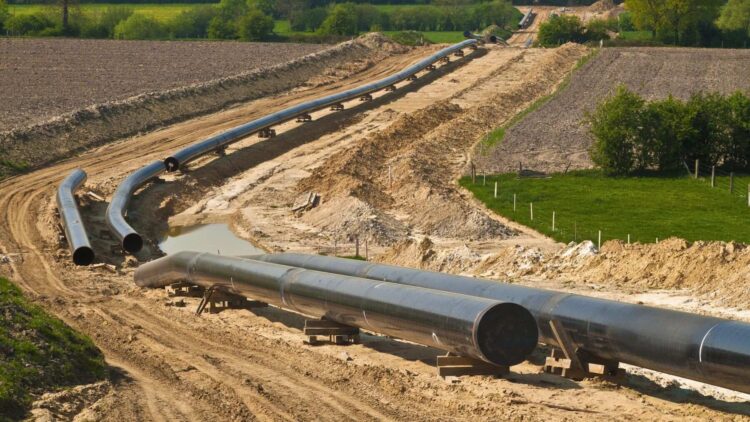Australia’s APA Group has announced a major step toward enabling its gas project in the Northern Territory: the finalization of an Indigenous land use agreement with traditional communities for the construction of the Sturt Plateau Pipeline. This measure secures the necessary authorization to move forward with the project, which will connect the Beetaloo Basin to the country’s existing gas infrastructure. The negotiation represents a technical and social achievement, enabling closer ties with local communities and encouraging discussions on cultural and territorial respect.
A strategic link for the Northern Territory
The 37-kilometer Sturt Plateau pipeline will be the first link between the Shenandoah South pilot project, operated by Tamboran Resources, and the Amadeus Gas Pipeline, which already supplies the Northern Territory. The connection aims to make Beetaloo gas accessible from 2026, strengthening the regional energy supply.
The APA estimates an investment of approximately 66.5 million Australian dollars, with construction scheduled to begin in September 2025. The project has already received a license from the territorial government, as the project is seen as an opportunity to guarantee stable energy and consequently bring benefits such as increased economic development in the region.
The Beetaloo Basin is seen as having great potential for the development of the Australian energy matrix, with projects that have the capacity to reduce costs in the long term and even support the energy security of trading partners in Asia.
The weight of the agreement with traditional peoples
The officialization of the Indigenous Land Use Agreement (ILUA) was led by the Northern Land Council, the body responsible for mediating negotiations of this type. The agreement establishes a series of commitments that involve not only the pipeline’s right of way but also social, economic, and environmental issues, ensuring support for the local people.
According to APA CEO Adam Watson, the decision demonstrates the company’s commitment to maintaining partnership relationships transparently and with ongoing dialogue with traditional landowners.
“The registration of this ILUA provides a strong foundation for the Sturt Plateau Pipeline to proceed in close partnership with Traditional Owners, ensuring the project is delivered safely and responsibly,” Watson said.
And the message being conveyed is that this collaboration is a key focus of the project. The company’s commitment has been constantly reinforced, stating that they will maintain channels of engagement throughout the pipeline’s lifespan, making clear the importance of a relationship that respects the culture and rights of Indigenous communities.
Domestic gas strengthens energy security and reduces costs
The implementation of this project brings significant economic significance to the country, ensuring national energy security. It reduces the country’s need to import liquefied natural gas (LNG) to meet domestic energy demand, which is a more expensive alternative and not very strategic for the country in the long term. A preliminary comparison makes Beetaloo’s financial benefits clear: while imported LNG could reach $23 per gigajoule in Melbourne, domestic gas from the basin would have an estimated cost of less than $12.
In other words, in addition to guaranteeing domestic supply, Beetaloo can sustain Australia’s position in the LNG export market, one of the country’s most valuable, which moves around 85 billion Australian dollars a year and mainly supplies partners on the Asian continent.
The agreement guarantees development and cultural respect
The agreement between the APA and traditional communities is a major achievement when it comes to developing Australia’s energy matrix while maintaining cultural and environmental respect. The company makes it clear that it is possible to proceed with the project, which will increase energy security and economic returns for the country, while simultaneously maintaining ongoing dialogue with local communities to avoid significantly impacting their lifestyles and territories.


